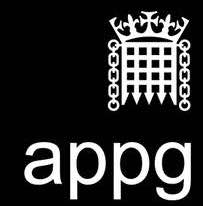The National Institute for Health and Care Excellence (NICE) has today released new guidelines aimed at supporting the safe prescribing and withdrawal of dependency-forming medications, including antidepressants, opioids, gabapentinoids, and benzodiazepines.
The updated guidance includes several positive changes, such as the requirement for doctors to offer alternatives to these drugs and to provide a written management plan at the start of a prescription.
However, the guidelines fall short in one critical area: they do not offer specific instructions for slow tapering, which is essential for safe withdrawal. Many patients currently report being taken off their medications too abruptly, leading to severe and long-lasting withdrawal symptoms.
Slow, ‘hyperbolic’ tapering (often over many months or longer) has been developed over years of patient experience and is supported by multiple medical journal articles. Despite this, the new guidelines lack detailed instructions on the rate of tapering, frequency of reductions, and the amount to decrease. Without this information, it is unlikely that doctors will alter their current practices.
NICE claims on its website to take “a comprehensive approach to assessing the best evidence available.” However, in this instance, it has not done so. The APPG for Prescribed Drug Dependence addressed the NICE committee during the guidelines consultation process to highlight the omission of this patient-developed evidence and to provide links to relevant research.
In response, the committee stated that only “randomised controlled trials were prioritised” and deemed the proposed evidence of “insufficient quality,” resulting in none of the suggested recommendations being included.
Yet, NICE asserts on its website that acceptable evidence “can include qualitative and quantitative evidence, from the literature or submitted by stakeholders. It can also include observational data and testimonies from experts.”
Danny Kruger, Chair of the APPG for Prescribed Drug Dependence, commented: “It is very disappointing that these new guidelines do not include the essential instructions for slow tapering that doctors need to support safe withdrawal. This is due to the neglect of crucial evidence developed with patient groups, as it does not meet NICE’s quality standards. We will be urging NICE to reconsider this evidence and their process to ensure that patient experiences are adequately represented in future guidelines.”
ABOUT THE APPG FOR PRESCRIBED DRUG DEPENDENCE
The APPG addresses the growing problem of prescribed drug dependence. Increasing numbers of prescriptions for addictive, psychoactive drugs are being given to both adults and children, including benzodiazepines, antidepressants, antipsychotics, stimulants and painkillers.
While these drugs may help some people in the short term, there is growing evidence that long-term use leads to worse outcomes, and many patients report devastating persistent withdrawal and other negative effects.
The APPG will engage with this issue by demanding appropriate services for those affected, proper training for medical professionals, reduced prescribing through adherence to new and existing guidelines, better data regarding the prevalence of PDD and more research into long-term harms associated with PDD.




